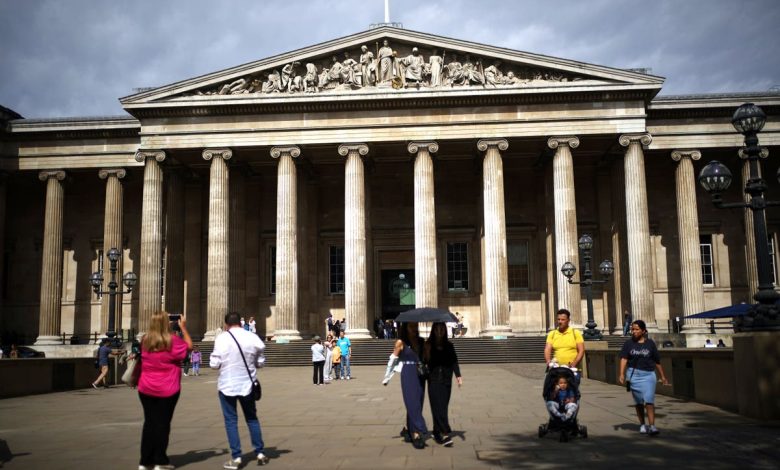FBI investigating sale of hundreds of items stolen from the British Museum

The Federal Bureau of Investigation is working to track down hundreds of items stolen from the British Museum and sold to US collectors.
Last year, the museum announced that about 1,500 ancient gems, jewelry and other items had either been stolen, damaged or were missing from their collection. The items were not cataloged and the institution is working to determine ownership. The museum was first alerted to the missing items about a year before the news was made public.
So far, 626 items have been returned to the museum, and 100 more recovered. The FBI has assisted with returning 268 items to the museum that were sold to a collector in Washington DC, according to the BBC. But hundreds more remain missing.
The FBI declined to comment on the investigation to The Independent. According to the BBC, the FBI contacted people who bought items from eBay, and said that they had been approached by a seller named “Paul Higgins”, with the username “sultan1966”.
Peter Higgs, a former curator at the museum, has been accused of damaging, melting down, stealing and selling the ancient artifacts.
He has denied the allegations, the BBC reported. However, he has admitted that the eBay account belonged to him, according to court documents.
It is alleged that the museum employee earned around £100,000 ($127,000) from selling objects over the course of a decade. He mainly sold items on eBay to approximately 45 buyers, according to court documents. One of the items sold to an eBay buyer was an amethyst gem depicting a cupid.
Mr Higgs has not been charged with a crime, and some of the stolen items have been put back on display. The British Museum has brought a civil case against the former curator.
This week, Dr Ittai Gradel, a Danish antiquities dealer who alerted the British Museum to the missing items in 2021, said that the institution did not get back to him for months, and that an internal investigation erroneously determined his concerns were baseless.
“Initially the British Museum didn’t say anything. I waited for months and I wrote back to get an answer several times but it took, I think, five months before they finally replied that everything was fine. Nothing was missing,” Dr Gradel told BBC Breakfast.
It’s not clear how the antiquities dealer came to the conclusion that the items were from the British Museum.
The British Museum has issued an apology to Dr Gradel, and the director and deputy director have both left their positions.
Dr Gradel said that he bought some items without knowing their origins, including an obsidian gem depicting a 2nd century head of Hercules, thought to be worth thousands of pounds. He bought the item in a private deal for £300 ($383), the BBC reported. The seller told Dr Gradel that he had acquired the item from a sibling who inherited it from their grandmother.
Dr Gradel later sold the items to other collectors and some ended up on display in the Deutsches Edelsteinmuseum in Idar-Oberstein, Germany. He also managed to track down some missing artifacts in Hong Kong, Hamburg, Cologne and Paris.







